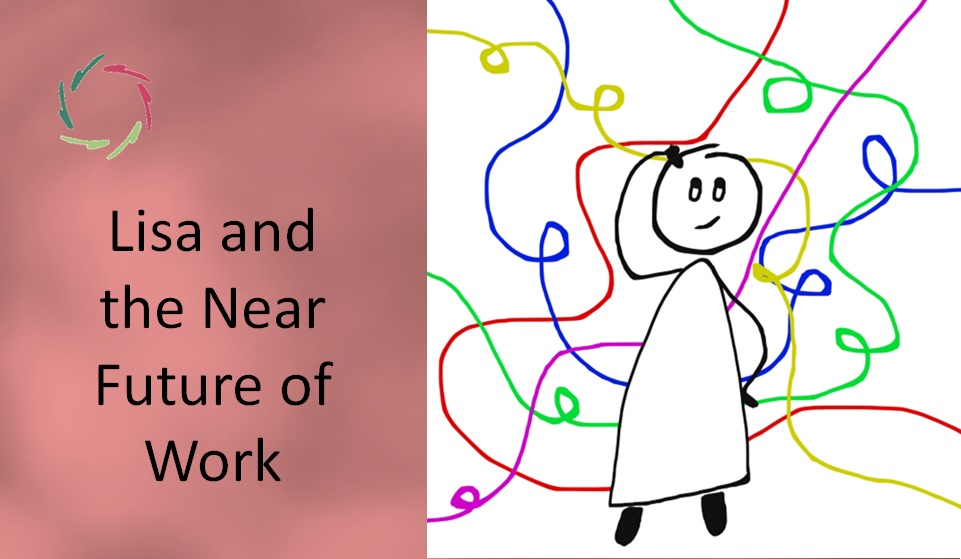Will Lisa Bring More Work?

At any time, A.I. (including coach-bot Lisa) must support people in the diverse needs presently met by their work. From that ethical basis, we can consider the short and long term.
It’s interesting in this regard to make a conceptual difference between work and job. New developments may simultaneously lead to fewer jobs and more meaningful work.
Which needs are met by working?
Meaningfulness first ― most important for many also if they are not consciously aware of this. Through their work, many people can combine what they like to do, what they are good at, and what is needed in their environment, broad or small. In short, it allows them to say that “I matter.” It provides a substantial reason to exist.
Then also ‘making a living,’ of course (!), and things like some structure if wanted, showing care, having challenges to overcome, feeling needed by loved ones, etc. Note that economic needs are only part of this.
Note also that once these needs are met, questions about ‘having a job’ become less relevant — with short- and long-term consequences.
Broader economic context
The title’s question has a broader undertone in economics: Will a country’s GDP decline when fewer people have a paying ― tax-producing job?
For this, we may have to review what is meant by GDP. There has been little autonomy within A.I. until now, but that is about to change. Where prior A.I. developments enabled people to be more productive (through automation), it is becoming productive by itself. We see the transition from automation to autonomization ― a crucial difference. Is the output of such A.I. part of the GDP?
To me, that’s obvious, even if A.I. doesn’t ‘earn money’ ― which it never should.
This means reinventing the economy for the future.
We can better start doing so now and let it happen with a gentle slope.
A first step may be to let A.I. companies operate for public benefit (which fortunately is a present-day trend). Money may be made with that aim and to make the company robust. A.I. products should be free for those who cannot afford to pay, such as in developing countries. Gradually, this can widen to everyone while care is being taken to meet people’s needs as described above.
From the above, we can deduce that A.I. in general can have a very positive impact on ‘work’ for individual and society ― if we make it so, and we should.
Let’s focus on Lisa as an example now.
Work at short-term
Lisa will do much of the work that coaches and psychotherapists do now — cheaper, probably better, and more consistently.
Since Lisa, in practice, costs so little, the available resources (money, people) can be used for other human-related goals in coaching. In this respect, I think of a vast impact on psycho-somatics. Many people deserve and will get much deeper support than, for instance, merely chronic medications. Is there more meaningful work than providing this support human-to-human, with Lisa embedded in the workflow for optimal efficiency?
Thus, there will not be less work for the psyche-oriented sector but different work.
Work at long-term
While predictions in the long term are, of course, challenging because of the ever-more rapidly changing A.I. technology, one can turn things around ― positing the wanted predictions. One can investigate what is needed from that A.I. future back to now.
From now on, two very different futures are possible. That includes what kind of work people will do, for whom, and to what end. There is no exaggeration in saying that one is a dystopia, the other a eu-topia.
But let’s get our feet back on the ground of the present and near future.
Lisa as a lifelong career coach
This is an example of the less immediately obvious but essential, nevertheless. Career coaching by Lisa can lead to (much) more jobs and work in the short term, not by directly employing people concerning Lisa’s developments but as a side effect of what Lisa can do.
It may even be one of the most fascinating things in this regard.
If ‘career’ also means work – and not only jobs – then this goes even further, being a crucial support in transitioning society toward the future of work.
The future is to those (individuals and societies) who dare to think broadly.
Those broad thinkers should also be Compassionate thinkers.


